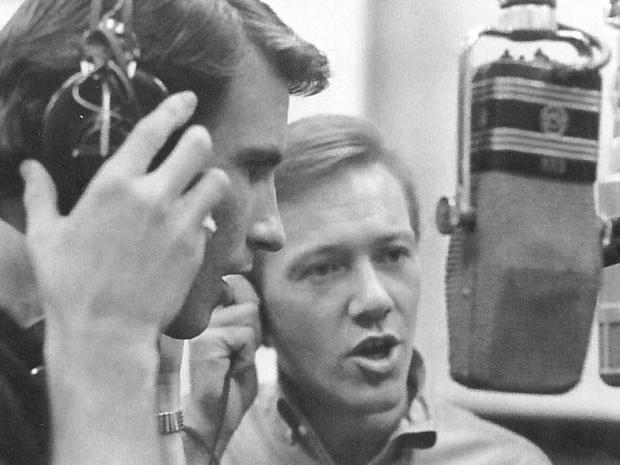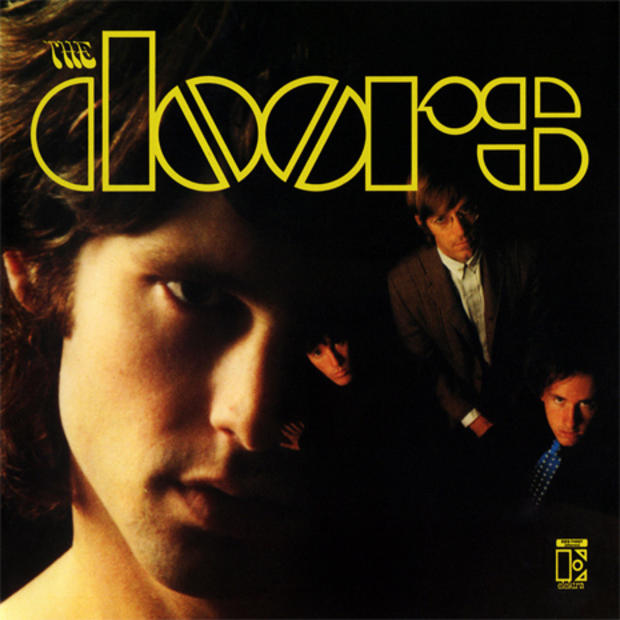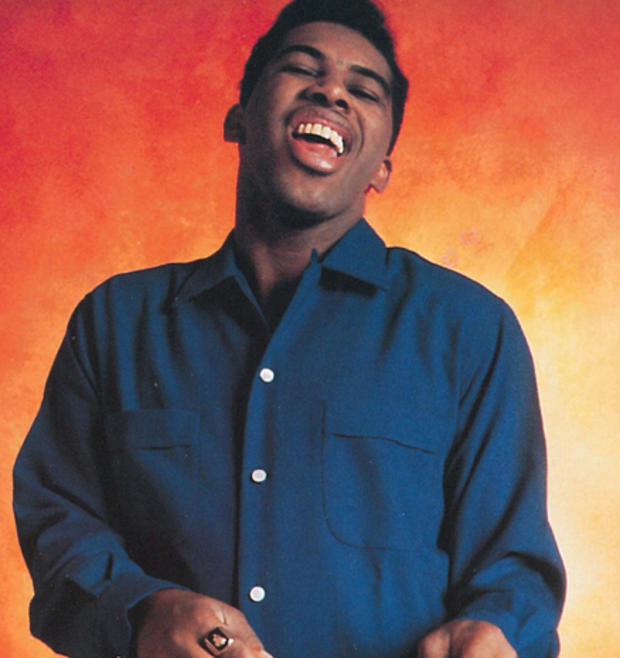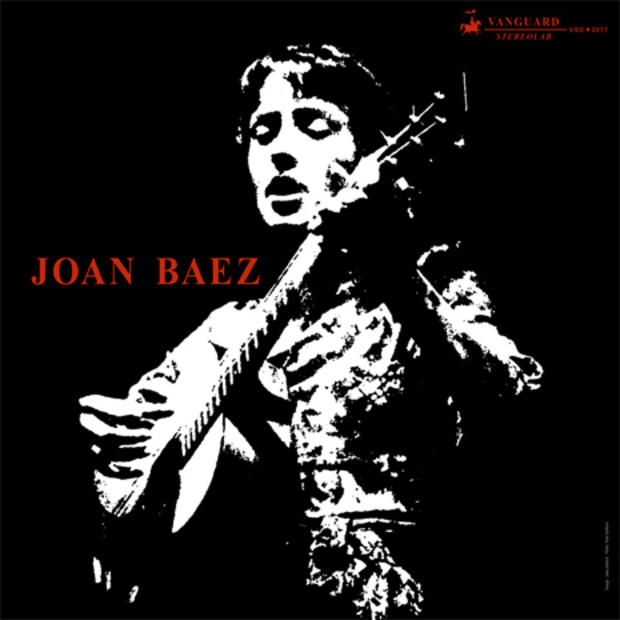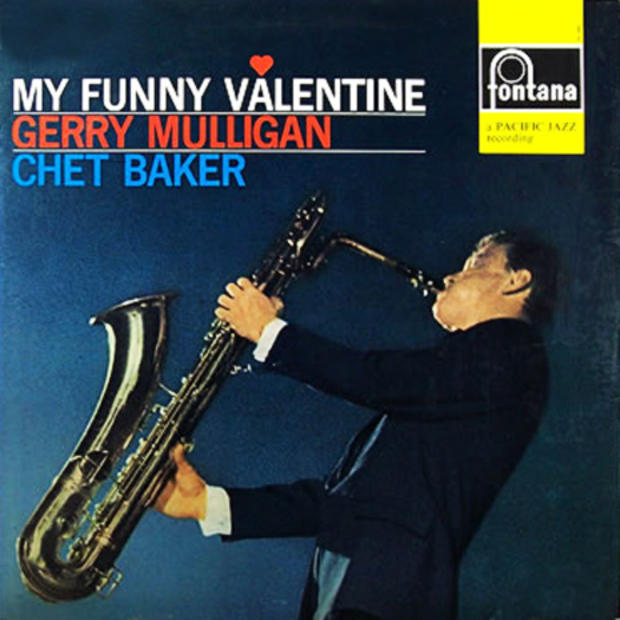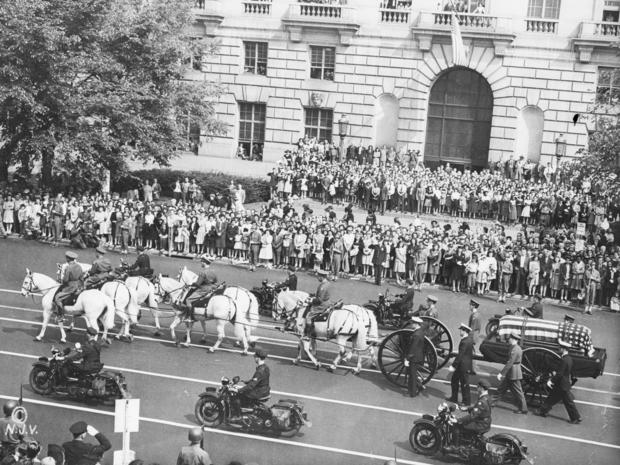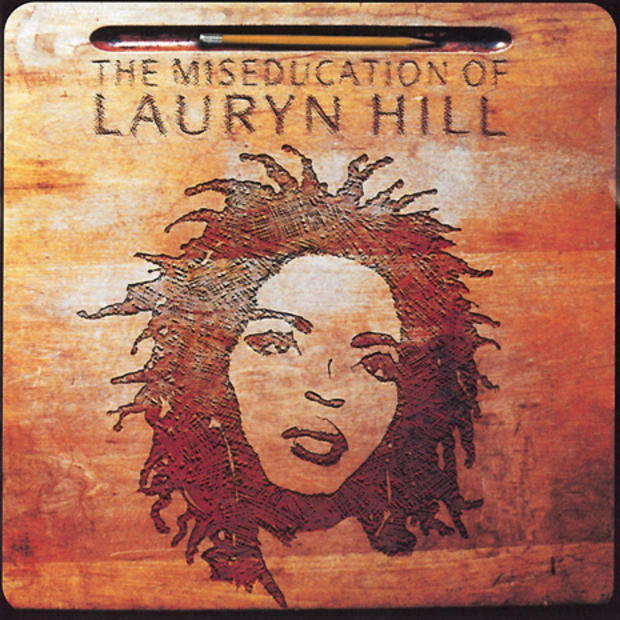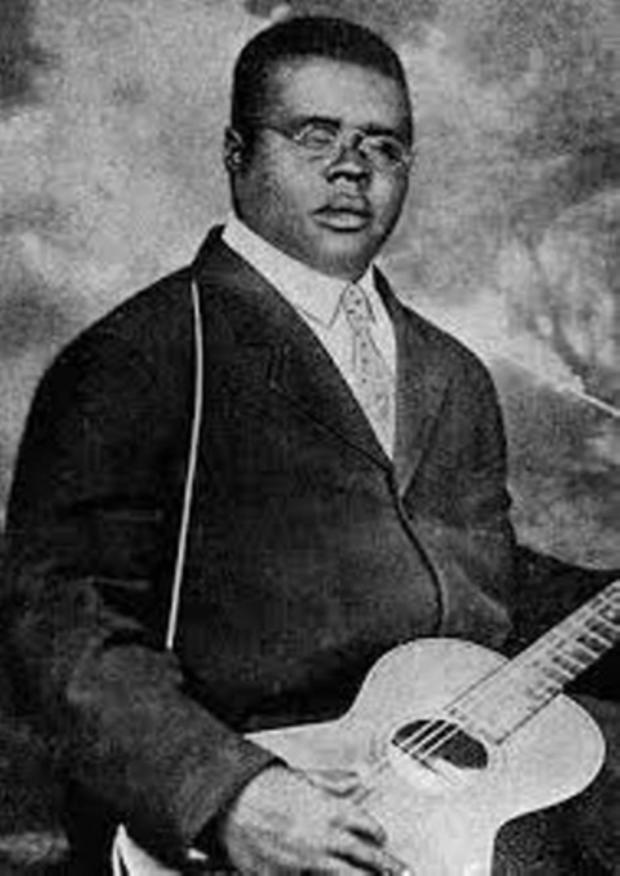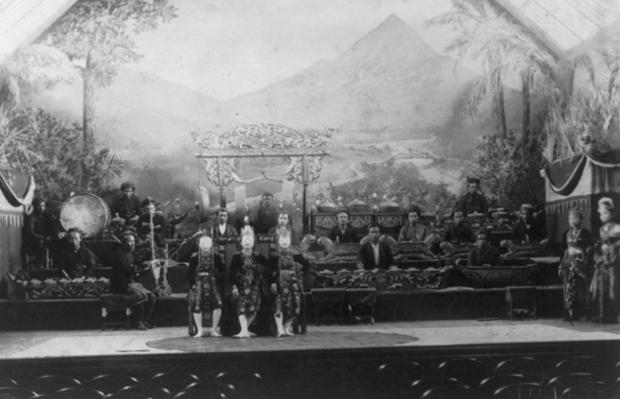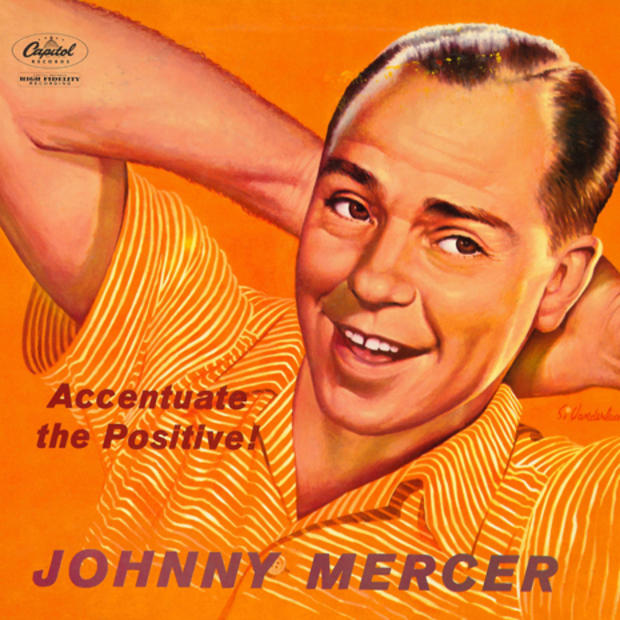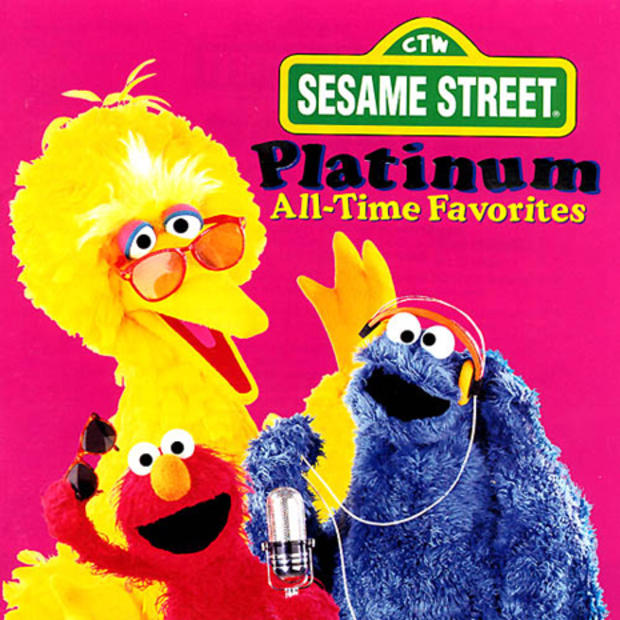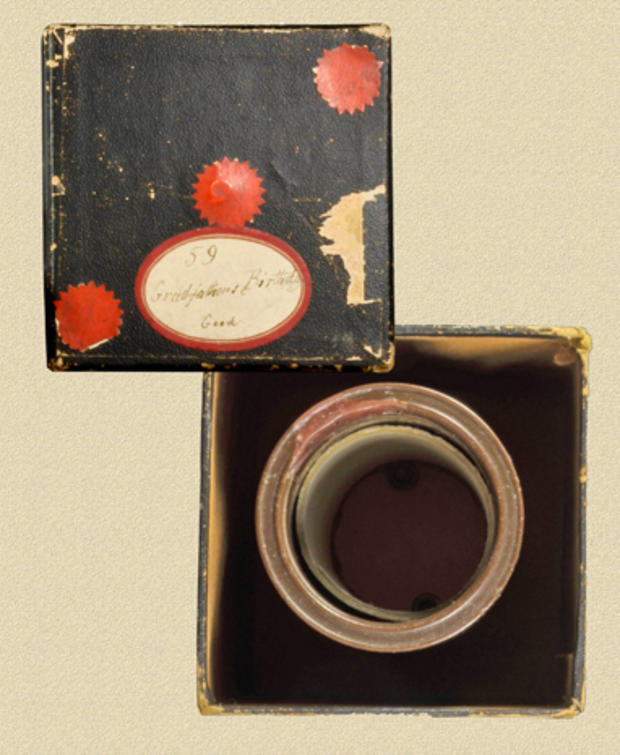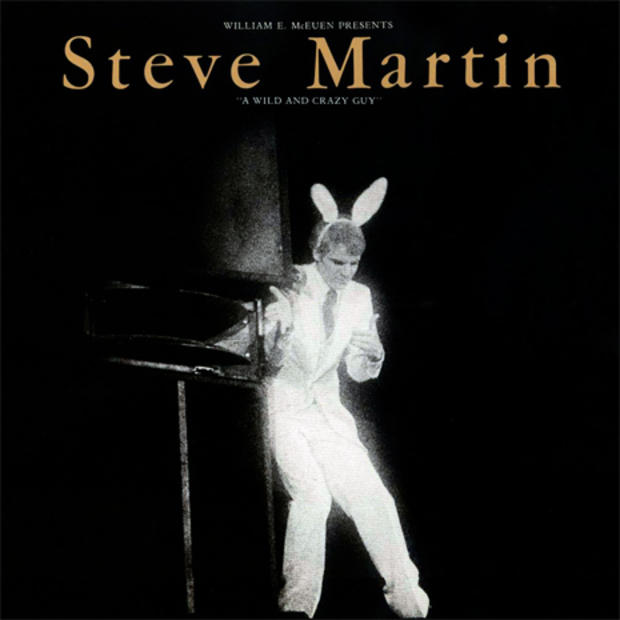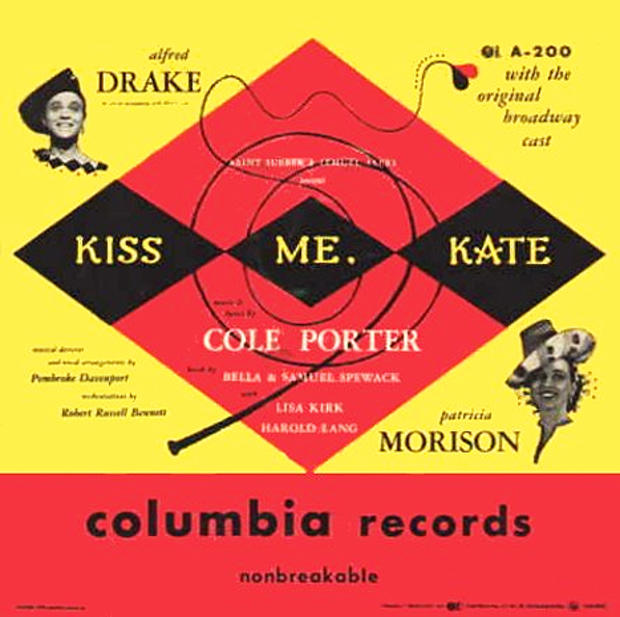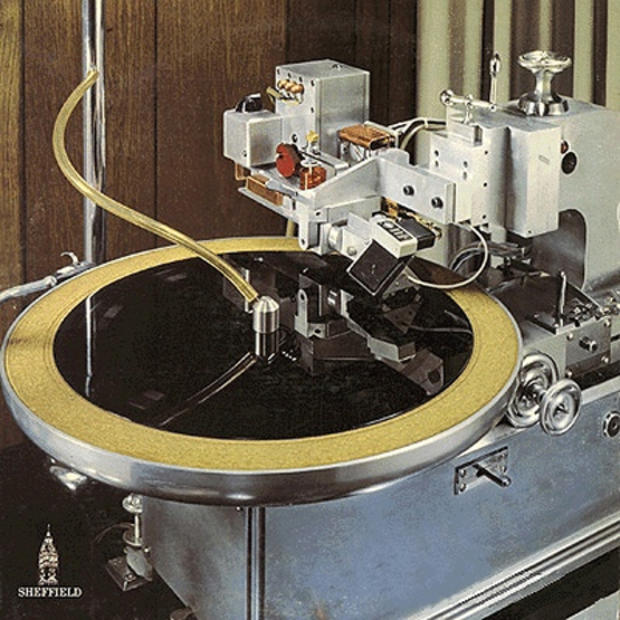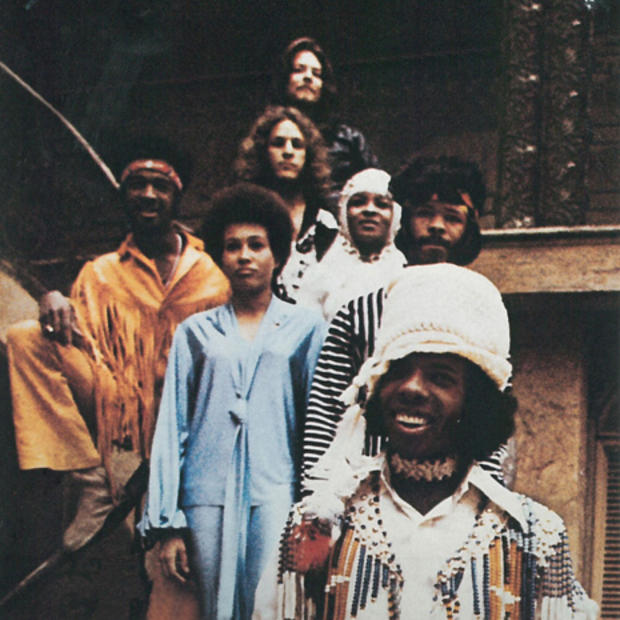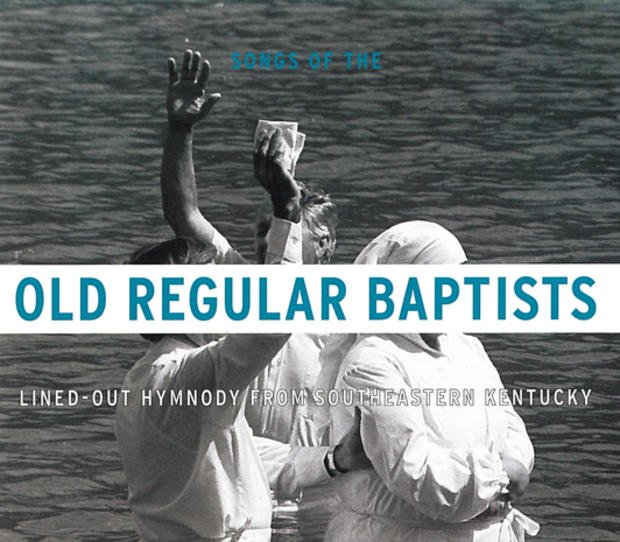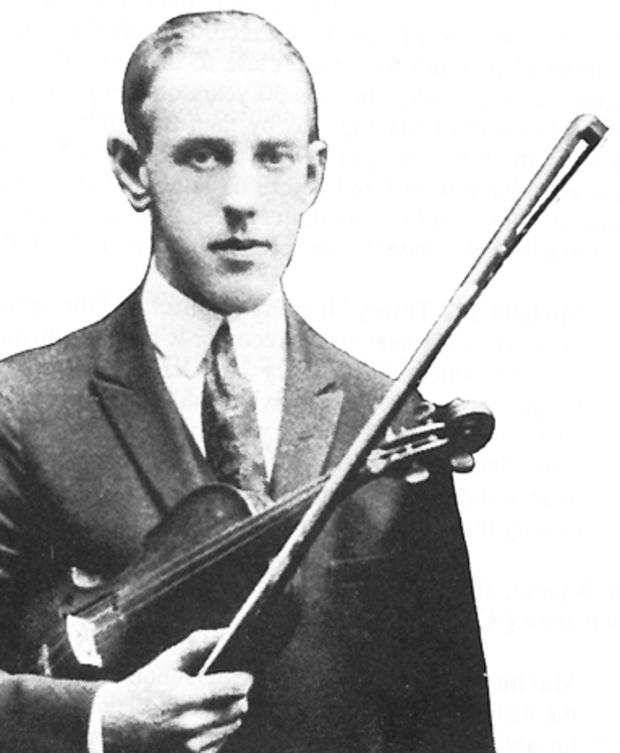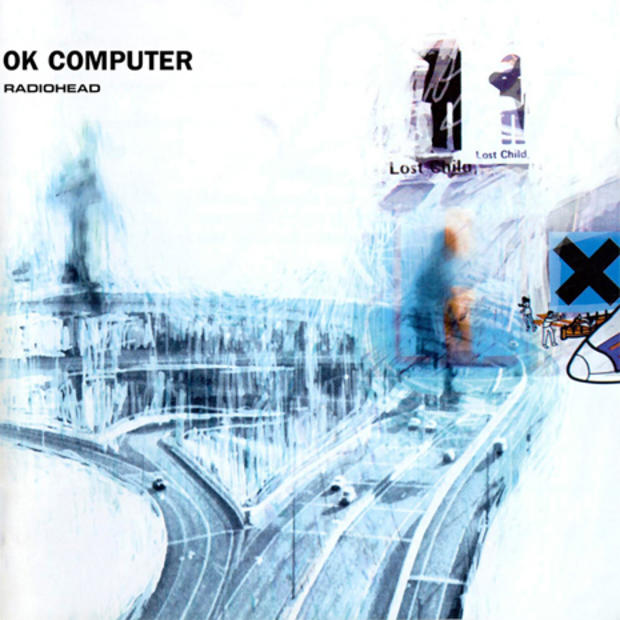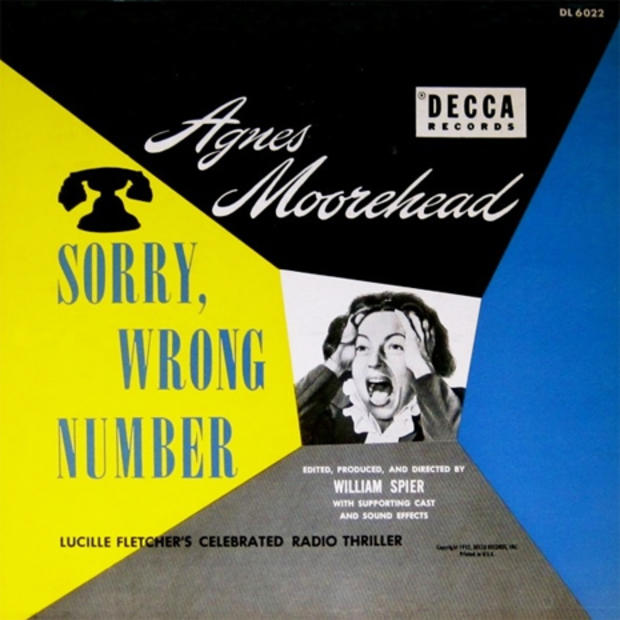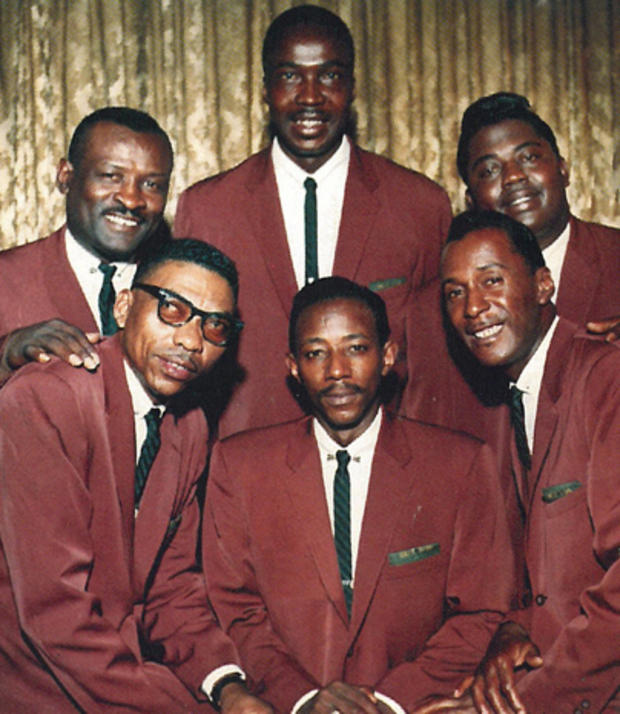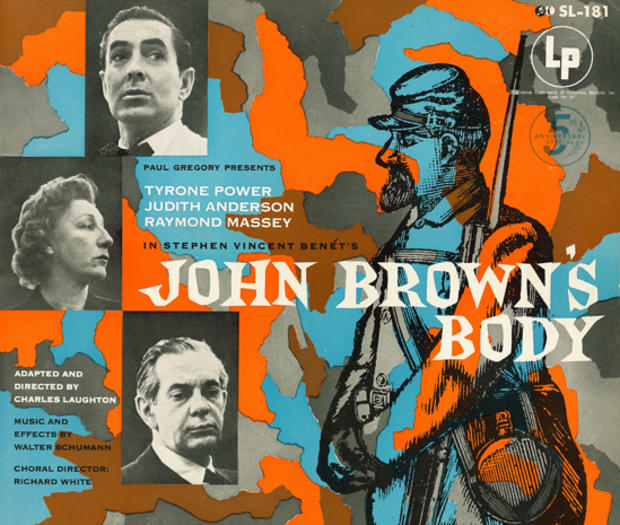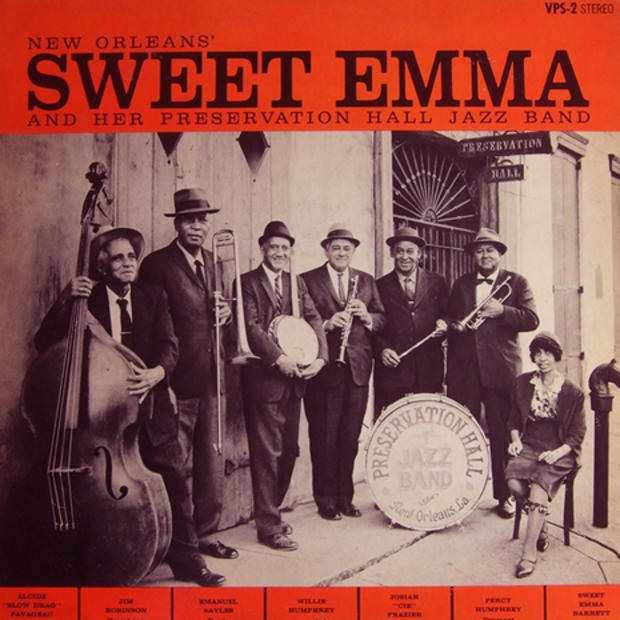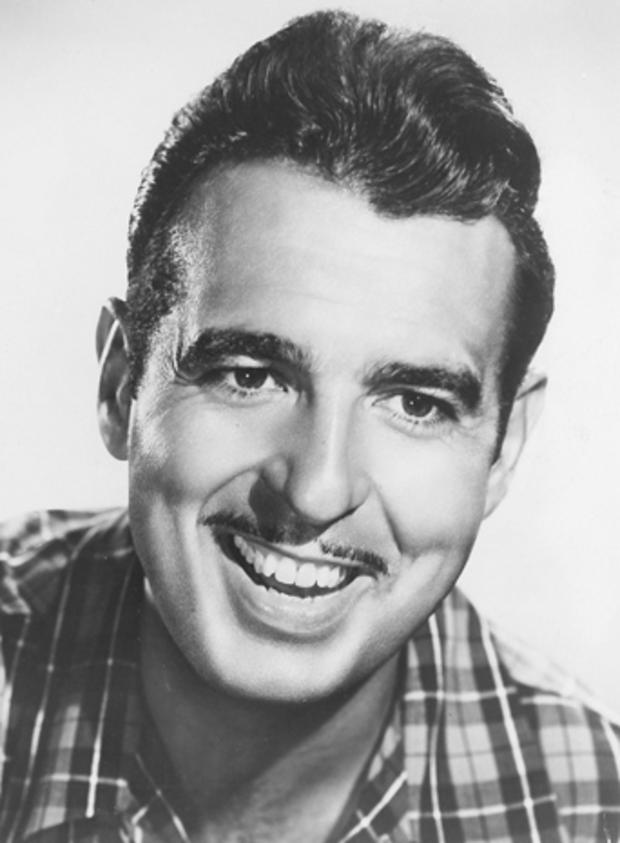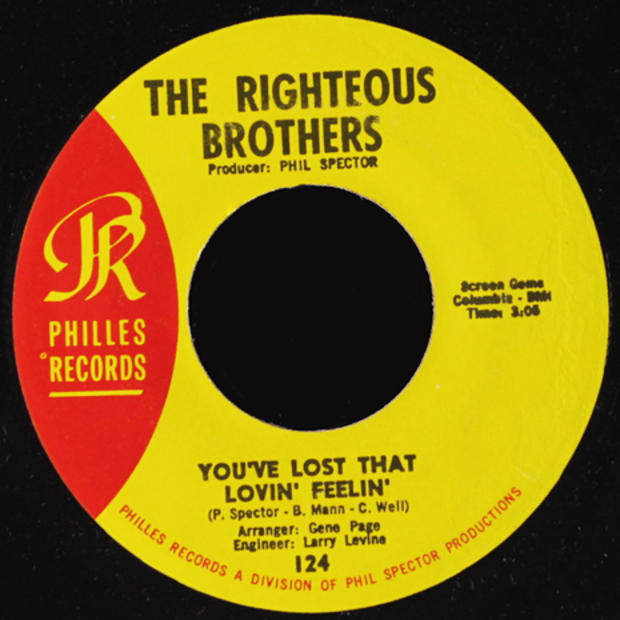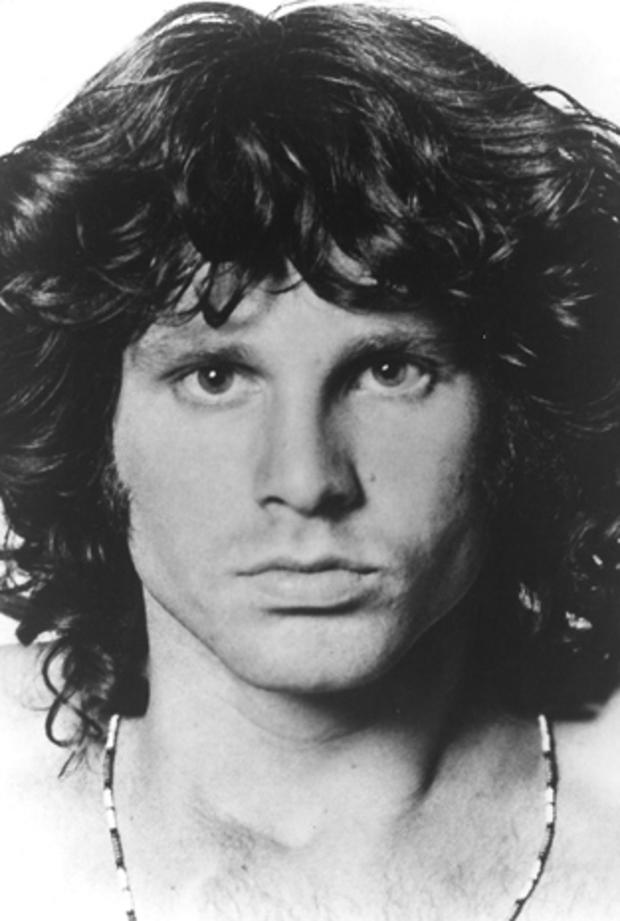Additions to National Recording Registry (Photos + audio)
Left: The Righteous Brothers, whose 1964 hit "You've Lost That Lovin' Feelin'" is just one of the latest recordings to be marked for preservation by the Library of Congress.
On March 25, 2015, the Library named 25 audio recordings to its National Recording Registry, a compendium of sound recordings that will be preserved as representative of America's cultural, artistic and historic treasures. Ranging from rock, pop, jazz, classical, gospel and show tunes to spoken word and comedy, the recordings have been recognized as vital to our nation's audio legacy.
"By preserving these recordings, we safeguard the words, sounds and music that embody who we are as a people and a nation," said Librarian of Congress James H. Billington.
Click though our gallery to listen to audio samples from each of this year's additions.
By CBSNews.com senior producer David Morgan
"The Doors"
PLAY EXCERPT: From "Light My Fire" by The Doors (Elektra Records)
PLAY EXCERPT: From "The End" by The Doors (Elektra Records)
You know that it would be untrue,
You know that I would be a liar,
If I was to say to you,
Girl, we couldn't get much higher.
Come on baby, light my fire.
The group's debut album, released in early 1967, was a somber, hypnotic milestone - a blend of rock, blues, jazz and classical melodies and sonics. Featuring Jim Morrison's vocals, guitarist Robby Krieger, keyboardist Ray Manzarek, and drummer John Densmore (with session musician Larry Knechtel brought in on bass), "The Doors" was a seductive introduction to one of the most powerful instigators of psychedelic rock.
Songs on the album include the Number 1 hit "Light My Fire," "Break On Through (To The Other Side)," "Soul Kitchen," "Twentieth Century Fox," "Alabama Song," "Back Door Man," and "The End."
Excerpt from "The End"
"Stand by Me"
PLAY EXCERPT: "Stand By Me" by Ben E. King (Rhino)
This classic ballad, inspired by a gospel song, was written by Jerry Leiber & Mike Stoller (using the pseudonym Elmo Glick) and Ben E. King (who'd penned for his group, The Drifters, who turned it down).
The song has been covered hundreds of times since it was first released in 1961, but King's impassioned singing, and the soaring string arrangement, make this Atco recording the only one you will ever need.
"Joan Baez"
PLAY EXCERPT: From "All My Trials" by Joan Baez (Vanguard)
After recording "Folksingers 'Round Harvard Square" with Ted Alevizos and Bill Wood in 1959, Joan Baez (then a mere 19 years old) embarked on her first solo album (accompanied on a few songs by Fred Hellerman of The Weavers). Her eponymously-titled record, released on Vanguard, blended traditional ballads in this landmark of the folk revival. Notable tracks include "All My Trials," "Donna Donna," "East Virginia," "Mary Hamilton," "Rake and Rambling Boy," and a chilling "House of the Rising Sun."
Critic Bruce Eder described Baez's voice as "from heaven, a soprano so pure and beguiling that the mere act of listening to her - forget what she was singing - was a pleasure."
The album was remastered and reissued in 2001 with three additional tracks.
"My Funny Valentine"
PLAY EXCERPT: From "My Funny Valentine" by the Gerry Mulligan Quartet, featuring Chet Baker
The Richard Rodgers-Lorenz Hart song "My Funny Valentine," from the 1937 show "Babes in Arms," quickly became a regular fixture of the Great American Songbook, to be recorded by such artists as Frank Sinatra, Andy Williams, Ella Fitzgerald, Elvis Costello and Chaka Khan.
But the song, recorded live on May 20, 1953 at The Haig jazz club in Hollywood, Calif., became much more melancholy when performed by The Gerry Mulligan Quartet (featuring baritone saxophonist Mulligan, trumpeter Chet Baker, drummer Larry Bunker and Carson Smith on bass - and no piano!). If cool didn't exist as a word, it would have been invented for this.
President Franklin D. Roosevelt's Funeral
PLAY EXCERPT: From Arthur Godfrey's CBS Radio broadcast of FDR's funeral, April 14, 1945
Arthur Godfrey was already a 15-year broadcasting veteran when he was added to CBS Radio's team of journalists covering the funeral of President Franklin D. Roosevelt in Washington, D.C., on April 14, 1945.
Positioned near the White House, he gave a detailed and emotionally-wrought description of the procession, including of the caisson carrying the president's body. "God give me strength to do this," Godfrey choked, shortly before breaking down on the air, forcing CBS to switch away briefly from the scene. A broadcasting faux pas, yes, but it was an emotionally-telling evocation of the nation's heartache.
Although Godfrey was embarrassed by the incident, it did not impede his later success and popularity as host of a national morning program on the same network.
"Fanfares for the Uncommon Woman"
PLAY EXCERPT: From "Fanfares for the Uncommon Woman" by Joan Tower (Koch Int'l Classics)
Joan Tower, who began composing for the concert hall in the 1960s, created her five "Fanfares for the Uncommon Woman" between 1986 and 1993. Its title a wink to Aaron Copland's "Fanfare for the Common Man," Tower's "Fanfares" are bold pieces (each written for a different orchestral configuration) that, says Tower, "are dedicated to women who are adventurous and take risks."
This 1999 performance by the Colorado Symphony Orchestra, conducted by Marin Alsop, was the first recording of all five parts.
"The Miseducation of Lauryn Hill"
PLAY EXCERPT: "Doo Wop (That Thing)" from "The Miseducation of Lauryn Hill" (Columbia Records)
Guys, you know you better watch out.
Some girls, some girls are only about
That thing, that thing, that thing.
In 1998 the singer-rapper Lauryn Hill (who'd previously won two Grammys as part of the band The Fugees) released her first solo album, "The Miseducation of Lauryn Hill." Debuting at No. 1, it would cop her the Grammy Award for Album of the Year, as well as four other Grammys (including Best Female R&B Vocal Performance for "Doo Wop (That Thing)").
Hill was the first woman to receive 10 Grammy nominations in a single year, and the first to win five in one night.
Blind Lemon Jefferson
PLAY EXCERPT: From "Black Snake Moan" by Blind Lemon Jefferson (Document Records)
African-American street singer and guitarist Blind Lemon Jefferson (1893-1929), referred to as the "Father of the Texas Blues," brought a personal touch to his wailing tenor when performing blues songs on his solo recordings.
This 1928 recording on the Okeh label features two of Jefferson's best performances: "Black Snake Moan" and "Matchbox Blues."
World Music Recordings, 1893
An early introduction of "world music" to the United States occurred at the 1893 Chicago World's Fair, when musicians and singers from the Middle East and the South Pacific entertained audiences with folk songs and non-Western musical styles.
Harvard psychologist Benjamin Ives Gilman (later a curator for the Boston Museum of Fine Arts) made 101 wax-cylinder recordings at the Fair, producing some of the earliest known recordings of the music of Fiji, Java, Samoa, and other far-flung lands (such as the Javanese Gamelan heard in the excerpt above).
Left: Javanese Gamelan Orchestra and Topeng masked dancers, at the World's Columbian Exposition, Chicago, 1893.
"Ac-Cent-Tchu-Ate the Positive"
PLAY EXCERPT: From "Accentuate the Positive" by Johnny Mercer (Capitol Records)
You've got to ac-cen-tu-ate the positive,
E-li-mi-nate the negative,
Latch on to the affirmative,
Don't mess with Mister In-Between.
Singer and lyricist Johnny Mercer penned this upbeat pop tune with composer Harold Arlen for Paramount's 1944 musical comedy, "Here Come the Waves," in which it was performed by Bing Crosby and the Andrews Sisters. Mercer and Arlen also shared an Academy Award nomination for Best Original Song - one of 19 Oscar noms Mercer received during his career.
But Mercer beat the film to the punch, releasing his own Capitol recording of "Accentuate the Positive." Backed by The Pied Pipers and Paul Weston and His Orchestra, Mercer's "Accentuate" hit the Billboard charts three weeks before Crosby's crooning on Decca. Both renditions peaked at Number 2.
The song also became a go-to number for such artists as Kay Kyser, Dinah Washington, Artie Shaw, Perry Como, Dean Martin, Connie Francis, Sam Cooke, Aretha Franklin, and Paul McCartney.
"Sesame Street: All-Time Platinum Favorites"
PLAY EXCERPT: From "Rubber Duckie," by Ernie
Rubber Duckie, joy of joys,
When I squeeze you, you make noise!
Rubber Duckie, you're my very best friend, it's true!
This 1995 compendium features the voices of "Sesame Street" in a charming collection of sing-along songs for Baby Boomers, and their kids, and their kids' kids.
One of the most popular tunes on the disc was "Rubber Duckie," sung by Ernie (Jim Henson), which actually reached #16 on the Billboard pop charts in 1970.
Home-Recorded Wax Cylinders
PLAY EXCERPT: Sampler of home audio recordings c.1890-1910 (University of California, Santa Barbara)
Early recordings on wax cylinders are rare, given their fragility. But the technology introduced in the late 19th century allowed home recordings, to preserve family events. The University of California, Santa Barbara Library collection of Vernacular Wax Cylinder Recordings, dating from c. 1890s-1910s, consists of more than 600 homemade cylinder recordings, the bulk of which were acquired over several decades by anthropologist Donald R. Hill and sound historian David Giovannoni.
These audio "snapshots" offer a tantalizing glimpse into everyday life at the turn of the century - birthday celebrations, sing-a-longs, crying babies, barnyard animals. Among the recordings rescued by UCSB was this piquant observation from 1902, in which the speaker remarks how a time will come "when all of these people have passed away and only their voices will be heard on your gramophone. Goodbye!"
"A Wild and Crazy Guy"
PLAY EXCERPT: "Nonconformist Oath" by Steve Martin (Warner Records)
PLAY EXCERPT: "King Tut" by Steve Martin (Warner Records)
After toiling as a writer and performer on TV variety shows, the standup comic burst into mass media idolatry following his appearances on "Saturday Night Live," as a manic, banjo-playing ball of energy willing to do anything, however silly, for a laugh (the arrow-through-the-head accessory was never more endearing).
A follow-up to his 1977 album, "Let's Get Small," "A Wild and Crazy Guy" was recorded in two parts - at the Boarding House nightclub in San Francisco, and in the far less intimate Red Rocks Amphitheatre near Denver. Among the comic bits: "Cat Handcuffs," "A Charitable Kind of Guy" ("I do a lot of work with unwed mothers, just helping them get their start"), and "You Naïve Americans." Martin also performs his novelty hit, "King Tut."
"Kiss Me, Kate"
PLAY EXCERPT: "Too Darn Hot," from "Kiss Me, Kate" (Columbia Records)
"Kiss Me, Kate," Cole Porter's sparkling 1948 Broadway smash, a winner of five Tony Awards, combined Shakespeare with backstage antics and a healthy dose of battle-of-the-sexes, as a touring theatrical troupe puts on a musical based on "The Taming of the Shrew."
This album, featuring leads Alfred Drake and Patricia Morison, was recorded at midnight sessions early in the show's run, and released on February 15, 1949, becoming Columbia Records' first original cast album available in the then-new 12-inch, LP format.
Direct-to-Disc
PLAY EXCERPT: "America," from "Lincoln Mayorga and Distinguished Colleagues" (Sheffield Lab)
In the 1960s pianist Lincoln Mayorga and his college friend Doug Sax were experimenting with improving the sound of recorded piano music, which they deemed inferior to the vibrancy they heard on old 78 rpm recordings. The solution? Direct-to-disc recordings, bypassing the master tape stage of production, which meant that musicians would have to play an LP-length session direct to the cutting lathes.
One of Sheffield Lab's first commercial releases, "Lincoln Mayorga and Distinguished Colleagues," was an audiophile's delight. After all, why not show off your expensive high-end music system with a rousing performance of "America"?
Two more volumes of "Distinguished Colleagues" albums followed, which were later collected onto a CD reissue.
"Stand!"
PLAY EXCERPT: From "Everyday People," by Sly and the Family Stone (Epic)
There is a blue one who can't accept the green one,
For living with a fat one trying to be a skinny one,
And different strokes for different folks,
And so on and so on and scooby dooby dooby.
The soul-funk artists Sly and the Family Stone had released three albums before their 1969 "Stand!" - a boisterous medley of jams, scats and riffs that not only established the band as one of the most energetic fusions of rock and R&B, but would also provide bountiful sampling material for Public Enemy, Wu-Tang Clan and 2Pac, among others.
Among the album's choicest cuts: "Everyday People," "I Want to Take You Higher," "Sex Machine," "Sing a Simple Song," "Stand!" and "You Can Make It If You Try."
"Songs of the Old Regular Baptists"
PLAY EXCERPT: From "Songs of the Old Regular Baptists" (Smithsonian Folkways)
The Old Regular Baptists of southeastern Kentucky still worship using a 16th century style of "lining hymn," which has no written musical notations. While lyrics are written in hymnals, the melodies have been passed down orally from one generation to the next.
The leader's chant and the chorus' response do not mirror each other, so the harmonies of these religious performances are secondary to the heterophony of the layers of voices.
The hymns on this 1997 album, released by Smithsonian Folkways, were sung by members of the Indian Bottom Association of Old Regular Baptists from Sassafras, Kentucky.
Michael Coleman
PLAY EXCERPT: From "The Boys of the Lough" by Michael Coleman (Viva Voce)
One of the leading figures in Irish music, fiddler Michael Coleman (1891-1945) arrived in New York City from his home in County Sligo in 1914, and bought to the U.S. a brisk, highly-flamboyant style of performance (referred to as Sligo fiddle style) that set new standards.
A vaudeville performer and prolific recording artist, Coleman's 1922 disc featuring "The Boys of the Lough" and "The Humours of Ennistymon" marked his breakthrough.
"OK Computer"
PLAY EXCERPT: From "Airbag," by Radiohead (Capitol Records)
Exhausted from their tour for their successful second album, "The Bends," and enthused by the rush of contributing a track to Brian Eno's charity recording, "The Help Album," the members of Radiohead sought to create a more experimental work in isolation, self-producing their recording for the first time. Holed up at an estate in Bath, England, Colin Greenwood, Jonny Greenwood, Ed O'Brien, Philip Selway and Thom Yorke crafted one of the most acclaimed, densely-textured art-rock albums of all time.
The band's named influences for their album's dueling guitars and synths, and their dystopian view of a world dominated by technology and computers, range from Miles Davis, The Beatles, Elvis Costello, Portishead, Krzysztof Penderecki, Ennio Morricone and Steve Reich, to political theorist Noam Chomsky.
"Sorry, Wrong Number"
PLAY EXCERPT: From "Sorry, Wrong Number" (Decca Records)
One of the most celebrated examples of radio drama was Agnes Moorhead's bravura performance as a bedridden woman who overhears a murder plot on her telephone, and comes to suspect that the intended victim is herself, in "Sorry, Wrong Number."
Written by Louise Fletcher, the story was first aired on the CBS series "Suspense" on May 25, 1943. It was so popular that Moorhead repeated her performance on radio several times; Decca eventually issued it on record. "Sorry, Wrong Number" was also adapted frequently for TV, and for the 1948 motion picture starring Barbara Stanwyck (who also played the role on "Lux Radio Theater."
"Mary Don't You Weep"
PLAY EXCERPT: From "Mary Don't You Weep" by The Swan Silvertones (Vee-Jay Records)
The Negro spiritual "Mary Don't You Weep" dates to before the Civil War, and was recorded as early as 1915, by the Fisk Jubilee Singers. But the 1959 recording by The Swan Silvertones - a close harmony gospel group - helped the song became a familiar anthem for the civil rights movement.
Claude Jeter's falsetto (and his intonation "I'll be a bridge over deep water") also inspired Paul Simon to later compose "Bridge Over Troubled Water."
"John Brown's Body"
PLAY EXCERPT: From "John Brown's Body" (Columbia Masterworks)
The growing popularity of LPs in the 1950s not only helped to keep long symphonic works from being presented with minimal breaks to flip sides (as was not the case with 78 rpm discs), but also helped popularize spoken word and non-musical theatre works.
In 1952 Columbia Records found success with its recording of Charles Laughton's staged reading of George Bernard Shaw's "Don Juan in Hell." As a follow-up, Laughton recorded his touring production of Stephen Vincent Benét's 1928 book-length Civil War poem, "John Brown's Body," as a two-hour-long double-album.
Laughton's adaptation featured actors Tyrone Power, Judith Anderson and Raymond Massey, and a choir singing music by composer Walter Schumann.
Sweet Emma Barrett
PLAY EXCERPT: From "New Orleans' Sweet Emma Barrett and her Preservation Hall Jazz Band" (Preservation Hall)
"New Orleans' Sweet Emma Barrett and her Preservation Hall Jazz Band," a 1964 recording of punchy and harmonious songs in a style known as "revival jazz," features several veteran players, including pianist Sweet Emma Barrett, the Humphrey Brothers (Willie on clarinet and Percy on trumpet), trombonist "Big Jim" Robinson, bassist Alcide "Slow Drag" Pavageau, banjo player Emanuel Sayles, and Josie "Cie" Frazier on drums.
"Sixteen Tons"
PLAY EXCERPT: From "Sixteen Tons," by Tennessee Ernie Ford
You load sixteen tons, and what do you get,
Another day older and deeper in debt,
St. Peter don't you call me 'cause I can't go,
I owe my soul to the company store.
Country singer Merle Travis recorded "Sixteen Tons," about the brutal life of a coal miner, in 1946, but it was the pop version by Tennessee Ernie Ford in 1955, with snapping fingers and a jazz combo, that topped the charts.
The song, and its hit status, were kidded in the 1956 comedy, "The Girl Can't Help It," in which "Rock Around the Rock Pile" is a smash, thanks to the squeally charms of Jayne Mansfield.
"You've Lost That Lovin' Feelin'"
PLAY EXCERPT: From "You've Lost That Lovin' Feelin'" byThe Righteous Brothers (Polydor)
You never close your eyes anymore when I kiss your lips,
And there's no tenderness like before in your fingertips.
You're trying hard not to show it, baby,
But baby, baby, I know it.
Brill Building standouts Barry Mann, Cynthia Weil and Phil Spector penned this hit for The Righteous Brothers - a romantic ballad that was one of the most soulful songs produced with Spector's trademark "Wall of Sound."
The producer feared the song's length (nearly four minutes) would dissuade radio DJs, so he purposely misprinted the running time on the single as a hair over three minutes.
Cut to 1999, when BMI named "You've Lost That Lovin' Feelin'" the most-played song on American radio and TV.
Jim Morrison
Left: Jim Morrison of The Doors.
You can nominate recordings for the National Recording Registry here.
View the full list of titles on the National Recordings Registry
You can also sample previous years' additions here:
Gallery: Additions to National Recording Registry (04/02/14)
Gallery: Additions to National Recording Registry (03/21/13)
Gallery: Additions to National Recording Registry (05/23/12)
Gallery: Additions to National Recording Registry (04/06/11)
Gallery: Additions to National Recording Registry (06/12/09)
By CBSNews.com senior producer David Morgan
